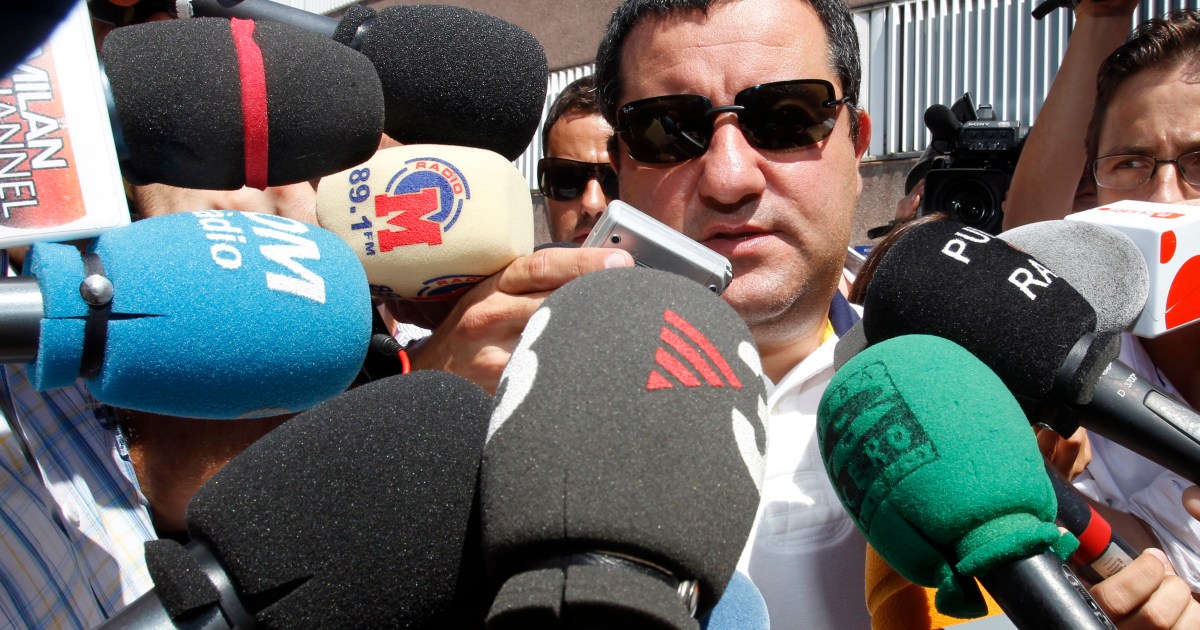Russian court shuts down sister arm of Memorial rights group | Human Rights News
A court in Moscow has granted a request to shut down another prominent human rights organisation amid a sweeping crackdown on Russian rights groups, independent media and opposition supporters.
The Moscow City Court’s decision on Wednesday to shut down the Memorial Human Rights Center came a day after Russia’s Supreme Court revoked the legal status of its sister organisation, Memorial, a human rights group that drew international acclaim for its studies of political repression in the erstwhile Soviet Union.
Russian authorities previously declared both organisations as “foreign agents” – a designation that brings additional government scrutiny and carries strong pejorative connotations.
Prosecutors petitioned to shut down the groups last month, arguing they had repeatedly violated regulations obliging them to identify themselves as foreign agents in all content they produce.
Memorial and the Memorial Human Rights Center rejected the accusations as politically motivated.
“We’ve been saying from the start that the ‘foreign agents’ law … is not lawful, and it’s not to be amended but only abolished because it was designed with the aim of strangling civil society. Today, we received another proof of that,” Alexander Cherkasov, board chairman of the Memorial Human Rights Center, said on Wednesday.
The rulings to close them drew widespread public outrage, with crowds of supporters showing up at courts on Tuesday and Wednesday despite freezing weather.
Both Memorial organisations promised to appeal the rulings revoking their legal status. In a statement on Tuesday, Memorial pledged to “find legitimate ways to continue our work”.
‘Relentless attacks’
The United Nations said on Wednesday it deeply regretted the Russian court decisions to ban Memorial, saying the moves further weakened Russia’s “dwindling human rights community”.
The UN Human Rights Office said the legitimate voices of civil society should not be stigmatised.
“We deeply regret the Supreme Court decision to shut down Memorial International, and the Moscow City Court decision to shut down its sister organisation, Memorial Human Rights Center,” a spokeswoman told the AFP news agency.
“These actions dissolve two of Russia’s most respected human rights groups and further weaken the country’s dwindling human rights community.”
Amnesty International called the ruling to close the Memorial Human Rights Center “yet another blow to Russia’s civil society movement after years of relentless attacks”.
Meanwhile, British Foreign Secretary Liz Truss said she was “deeply concerned” by the liquidation of the Russian human rights group.
“Memorial has worked tirelessly for decades to ensure abuses of Soviet era are never forgotten. Its closure is another chilling blow to freedom of expression in Russia,” Truss said on Twitter on Wednesday.
Crackdown
In recent months, Russian authorities have mounted pressure on rights groups, media outlets and individual journalists, naming dozens as foreign agents.
Some were declared “undesirable” – a label that outlaws organisations in Russia – or were accused of links to “undesirable” groups, and several were forced to shut down or disband themselves to prevent further prosecution.
On Saturday, the authorities blocked the website of OVD-Info – a prominent legal aid group that focuses on political arrests – and urged social media platforms to take down its accounts after a court ruled that the website contained materials that “justify actions of extremist and terrorist groups”. The group rejected the charges as politically driven.
Moscow city authorities served another prominent human rights group with an eviction notice on Tuesday.
The Civic Assistance Committee, which assists refugees and migrants in Russia, said officials handed the organisation a document voiding the agreement allowing the use of the space without compensation and ordered it to leave within a month.
“The Civic Assistance will be fighting [this],” the organisation’s chairwoman, Svetlana Gannushkina, said.
A number of Russian non-governmental organisations switched to operating as informal entities in recent years to avoid being affected by restrictive laws.




